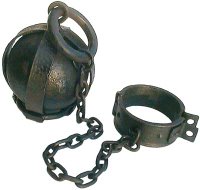
Being a subscriber of the Journal of Libertarian Studies has its perks -- such as that you receive your hard copy before the e-book makes it to the interwebs. Due to error however, such is not the case, but yet I do not begrudge the non-subscribers the accidental treat of having access to the PDF before us subscribers got our first licks, and besides, "better that it be on the side of more information rather than less".
The
JLS Winter 2006 edition is subtitled "SYMPOSIUM ON KEVIN CARSON'S STUDIES IN MUTUALIST POLITICAL ECONOMY" and features no less than seven articles.
I was so eagerly anticipating this issue, and it appears that it was certainly worth the wait (evaluating it using which ever method you devise to measure the value imbued through the disutility of waiting!)

For those of you who live in a bubble, Kevin Carson is either the
DR. JEKYLL or MR. HYDE (or both, depending on whom you ask) behind
mutualist.blogspot.com, a self-declared "free market anti-capitalist".
While I may disagree with the general attitude or conclusion of any of his particular blog posts, I still find it most enjoyable to studiously browse them; so if by any chance he reads this post, THANK YOU!
What I find that Mr. Carson brings to the table is serious, anti-statist critiques of existing political capitalism. Sometimes it's not enough to accept the status quo, and attribute its harshness, or seeming callousness to the free market -- as Mr. Carson likes to point out, the undesirable conditions may be in fact the result of existing, or even long-prior political-capitalism intervention.
At this point it's not difficult to disagree with Mr. Carson; after all, you may prefer to shop at Wal*Mart and other chain stores and personally dislike mom & pop operations. You may prefer to drive your gas guzzler even if you had to pick up the externalities tab. You may think that global warming is beneficial to humanity. You couldn't care less how much wealth other people have accumulated. In short, you would just be disagreeing whether the present arrangement of affairs is one which most people would choose to live under in the truly, unfettered free market in which they picked up all transaction costs.
The problem I find with Mr. Carson is his unwillingness to concede that there is some vague middle ground, a no-mans land so to speak, of which it's utterly impossible to divine what arrangements might actually prevail under the misty veil of the unknown free market ideal. I am even tempted to borrow the phraseology of the late Friedrich August Hayek, using what he termed "fatal conceit" to describe this willful egalitarianistic dream. [Not that I have anything against egalitarianism, other that I wouldn't want it imposed on me, and if people want to live under that principle, I wish them an 'equal' success.]
To me, attempting to calculate how many Wal*Marts would actually exist under free market conditions, is as fruitless as determining how many angels could dance on a pinhead. In Mr. Carson's idyllic free market,
the wealthiest individuals would be as pebbles among sand, not boulders. And I would probably agree with his opinion, but the difference is that I won't conflate that with factual knowledge from which I would be comfortable dealing criticism.
For instance, Mr. Carson often alludes to the transportation subsidies (or "positive externalities" as P.M. Lawrence would say) which he alleges props up the inefficiencies of large-scale business operations at the expense of smaller mom & pops, and local artisans. On this basis, Wal*Mart and other international giants deserve a good, un-vulgar libertarians' scorn for taking advantage of the subsidy, and causing the disadvantaged firms and individuals to wither and suffer.
But how do we know that the positive externalities of the existent transportation system are not inferior to the free market ideal? I believe that we don't have such knowledge, and if one had to make a best guess, odds are that the political-capitalism variation of transportation costs more than would a free market system. However, one should at least concede the possibility of it being such.
Mr. Carson takes no such position, and as you will shorty see, nor does he adequately address the historical evidence which contests his claims of a free market unlikelyhood.
Not so long ago, on a thread titled "
If It's Got a "Y" in It, It's Wal-Mart Day at Mises.Org", I wrote in response to an earlier commenter:
You bring up an interesting point. It's back to the old question of what is likely to occur under anarchy- cooperation or competition?
But you may find it interesting to note, that prior to government involvement in road building, there were hundreds of private road companies, just within New York state alone which were building private turnpikes left and right.
You may want to see Thomas DiLorenzo's "How Capitalism Saved America" which I read almost a year ago, so I don't exactly recall all the historical narrative that shows that private road building was possible without eminent domain. The explanation of how the cooperation occurred was that the landowners were offered a financial stake in the tolls, so that it wasn't much issue of acquiring land rights.
He also mentioned there, (contrary to what you mentioned) that the tolls fluctuated on the basis of tire width to vehicle weight, so that a heavy truck with wide wheels which generally smoothes out the road will pay less than vehicles with narrower tires which tend to rip ruts in the road.
His chapter on the North Pacific railroad also showed how a railroad company succeeded without huge land grants or subsidies and which privately funded their buyouts & buildouts.
Whether or not you buy Thomas DiLorenzo's argument, I still think it's a good enough question to make me hold back from criticizing transportation subsidies.
To which Mr. Carson kindly responded:
iceberg,
As Josh suggests, the profitability of shipping by truck depends in part on the fact that trucks are not currently taxed on the basis of their damage to the roadbeds. And while I don't doubt that it would be feasible to operate modest-sized highways on a free market basis, on preexisting rights of way, the lack of eminent domain would set severe limits on expanding their volume. Without ED, we'd probably have a network of 2-lane highways like those in the former USSR.
I haven't read Dilorenzo's book yet, so take this FWIW. But offering a high enough price to persuade every landowner, individually, to come on board would likely be considerably more expensive than the prices paid for condemned land under ED, and the resulting amortization costs would significantly raise the operating costs of the highway. In addition, the vulnerability of such arrangements to individual holdouts would raise all kinds of transaction costs.
Even we accept his assertion of this being an unlikely result in our modern day world, I would still leave the question open, since we don't know to what extent the demographical population density of today is the result of state capitalism. I'd also hazard that when roads were being built 100 years ago, vacant land, which would be considered available for road builder homesteading was certainly less scarce than it is today, and had those roads been built privately then, we would still be enjoying those goods today.
Alright, maybe so!






